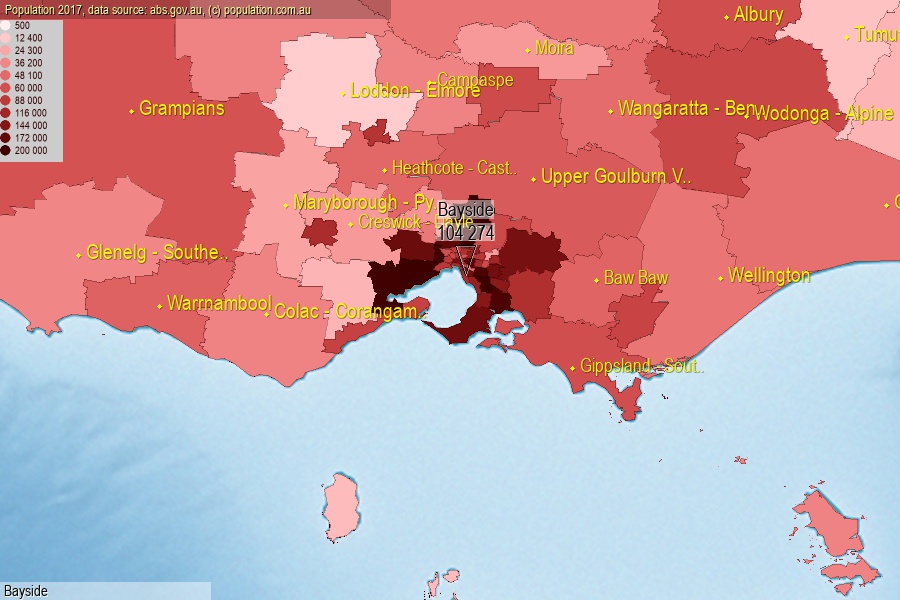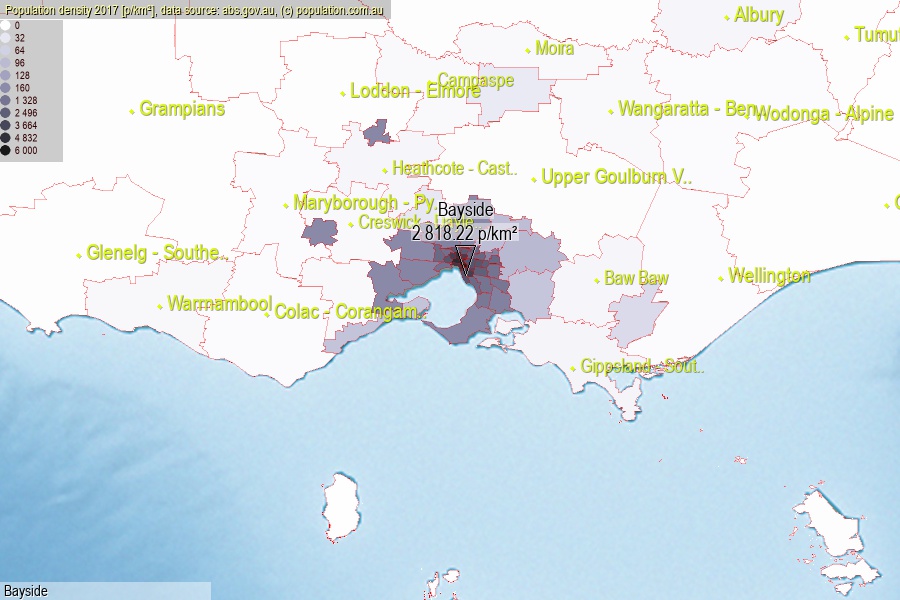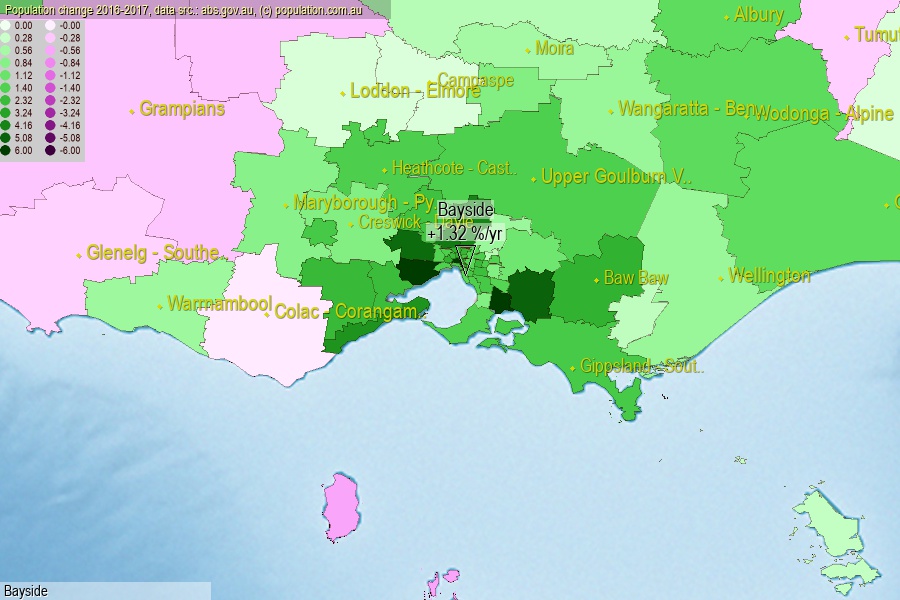 population.com.au
population.com.auLast official estimated population of Bayside (as Statistical Area Level 3) was 104 274 people (on 2017-06-30)[2]. This was 0.42% of total Australian population and 1.622% of VIC population. Area of Bayside is 37.00 km², in this year population density was 2 818.22 p/km² . If population growth rate would be same as in period 2016-2017 (+1.32%/yr), Bayside population in 2025 would be 115 839. [0]



Click to enlarge. Bayside is located in the center of the images.
Population [people], population density [p./km²] and population change [%/year] [2]
View borders » (new window) [4]
[1991-1992] -0.22 %/Y
[1992-1993] -0.77 %/Y
[1993-1994] -0.17 %/Y
[1994-1995] +0.22 %/Y
[1995-1996] +0.74 %/Y
[1996-1997] +0.41 %/Y
[1997-1998] +0.16 %/Y
[1998-1999] +0.42 %/Y
[1999-2000] +0.79 %/Y
[2000-2001] +1.09 %/Y
[2001-2002] +0.52 %/Y
[2002-2003] +0.42 %/Y
[2003-2004] +0.34 %/Y
[2004-2005] +0.54 %/Y
[2005-2006] +1.04 %/Y
[2006-2007] +1.36 %/Y
[2007-2008] +1.62 %/Y
[2008-2009] +1.41 %/Y
[2009-2010] +0.78 %/Y
[2010-2011] +0.55 %/Y
[2011-2012] +0.89 %/Y
[2012-2013] +1.32 %/Y
[2013-2014] +1.57 %/Y
[2014-2015] +1.47 %/Y
[2015-2016] +1.62 %/Y
[2016-2017] +1.32 %/Y
[0] Calculated with linear interpolation from officially estimated population
[1] Read more about SA3 and Australian Statistical Geography Standard (ASGS) on abs.gov.au
[2] Population data from Australian Bureau of Statistics (Population and density: 2017; change: 2016-2017)
[3] Digital Boundaries: Australian Statistical Geography Standard (ASGS) 2016.
[4] Border coordinates are simplifyed using Ramer-Douglas-Peucker algorithm.